Episodes
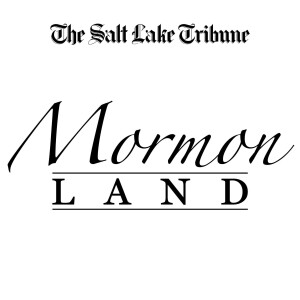
Tuesday Nov 22, 2022
Tuesday Nov 22, 2022
In the not-too-distant past, members of The Church of Jesus Christ of Latter-day Saints proudly wore the “Mormon” moniker. Starting in 2011, the Utah-based faith produced a global advertising campaign, with the slogan “I’m a Mormon.” It included hundreds of 2-minute video or photographic bios of individual members as a way to show outsiders that Latter-day Saints come in all shapes, sizes and colors. That they’re not so different; they’re your friends and neighbors.
Soon after current church President Russell M. Nelson stepped into his role as “prophet, seer and revelator” in 2018, though, he mandated that the term “Mormon” be banned from use by members, scholars, outsiders and media alike. He even had it removed from the faith’s world famous Mormon Tabernacle Choir, now known as The Tabernacle Choir at Temple Square.
In a recent blog post on By Common Consent, Taylor Kerby described feeling nostalgic about the previous ad strategy. He is here via Zoom to talk about what he liked about it, what it did for him and the church and what he misses about it.
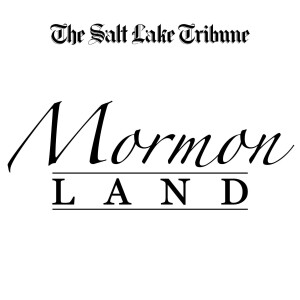
Wednesday Nov 16, 2022
Wednesday Nov 16, 2022
Members of The Church of Jesus Christ of Latter-day Saints have a love-hate relationship of sorts with Donald Trump.
Many in this GOP-leaning faith love, first, that he’s a Republican. Some admire his unconventional approach to politics. Some embrace his positions on economic and social issues.
Many loathe, however, his abrasive personality. Some cringe at his crude comments about women and immigrants. Some detest his unrelenting and unfounded allegations about election fraud.
Now, Trump is seeking a return to the White House. He carried the Latter-day Saint vote before, though by far thinner margins than most recent Republican presidential nominees? But where does Trump stand now with members? Will the love side of their Trump equation again win out over the hate side? Or are Latter-day Saints ready to move on? And could another polarizing Trump run put at risk the GOP’s dominance within this American-born faith?
Quin Monson, a political science professor at church-owned Brigham Young University and a partner at Y2 Analytics, discusses those questions and more.
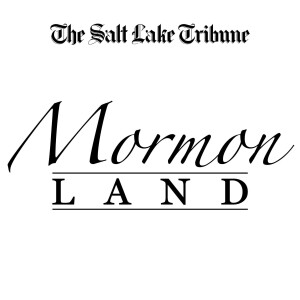
Wednesday Nov 09, 2022
Wednesday Nov 09, 2022
The financial dealings of The Church of Jesus Christ of Latter-day Saints continue to make headlines around the world.
We’ve documented its vast landholdings. Its multibillion-dollar reserves. And the ups and downs of its staggering stock portfolio. Now, the latest twist comes from Canada, where “The Fifth Estate,” the Canadian Broadcasting Corp.’s version of “60 Minutes,” detailed how the Utah-based faith funneled $1 billion in the past 15 years to its Brigham Young University campuses in the U.S.
Most of that tax-free money came from the tithes and donations of the 200,000 or so members who live in Canada. Although Canada’s laws allow the practice, it nonetheless deprives its treasury of hundreds of millions of dollars that could be used to support services in that country.
On this week’s show, Timothy Sawa, the producer and director of “The Fifth Estate” documentary, discusses the expose, how it came about, what else it uncovered, the faith’s financial tangles in Australia, its response and calls for reform and governmental investigations of a church “in crisis.”
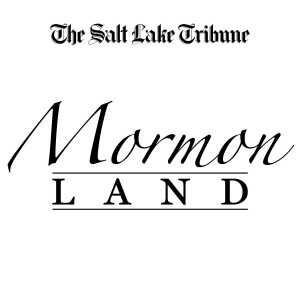
Wednesday Nov 02, 2022
Wednesday Nov 02, 2022
“The Family: A Proclamation to the World” spells out the central role marriage plays in The Church of Jesus Christ of Latter-day Saints.
Nuances aside, it designates so-called traditional roles, with husbands as providers for their families and wives as nurturers of their children. Yet many if not most, Latter-day Saints don’t live such neatly ordered existences. Their experiences are far more diverse, more challenging, sometimes more messy, often more rewarding and always more real.
Getting Latter-day Saint men to open up about their intimate relationships is no small feat. But writer-editor Holly Welker does just that in “Revising Eternity: 27 Latter-day Saint Men Reflect on Modern Relationships,” a collection of personal essays that touches on sexuality, illness, addiction, infertility, infidelity, divorce, sexual orientation, loss of faith, death and much more — all from a male perspective.
On this week’s show, Welker talks about what we can learn from these writers who reached beyond the Book of Mormon question of “what manner of men ought ye to be?” and revealed “what manner of men they are.”
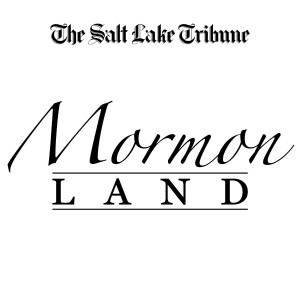
Wednesday Oct 26, 2022
Wednesday Oct 26, 2022
The polygamy of Mormonism’s second prophet-president, Brigham Young, is well known. Until the late 1990s, however, many members of The Church of Jesus Christ of Latter-day Saints had no idea that church founder Joseph Smith had taken dozens of women as his plural wives.
Unlike with his first wife, Emma Smith, he didn’t live with the women (polygamy was hidden during the early faith’s years in Nauvoo, Ill.) and how intimate he was with them remains in dispute among historians.
Scholar Todd Compton was among the first to fully document Smith’s wives in his 1997 book, “In Sacred Loneliness: The Plural Wives of Joseph Smith.” Now he has come out with a second book, “In Sacred Loneliness: The Documents,” which includes many of the materials he mined to gain a better understanding of the first Mormon’s marital relations.
On this week’s show, Compton discusses what he learned about Jospeh Smith, his wives (some in their early teens and some married to other men), what their marriages were like, their level of intimacy, whether any children resulted and more.
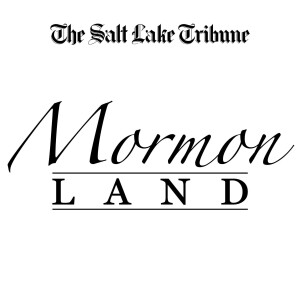
Wednesday Oct 19, 2022
Wednesday Oct 19, 2022
In the past year or so, Latter-day Saints have been showcased in a bevy of TV shows and documentaries — from “Under the Banner of Heaven,” about a grisly 1980s murder case, to “LulaRich,” about a pair of multilevel marketers.
Recently, moviemakers tackled the purported killings of two children by extremist members in Idaho and a series based on the true-crime documentary “Abducted in Plain Sight.”
Why this sudden interest in the church and some of its more bizarre episodes?
On this week’s show, Latter-day Saint filmmakers Jared Hess, who co-wrote and directed “Napoleon Dynamite” and “Murder Among the Mormons,” and Greg Whiteley, who directed “New York Doll,” “Mitt” and “Cheer,” discuss the industry and its fascination with Mormonism.

Wednesday Oct 12, 2022
Wednesday Oct 12, 2022
Launched in the 1970s, Affirmation is the oldest support group for LGBTQ members of The Church of Jesus Christ of Latter-day Saints. The mission, according to Affirmation’s website is to create “worldwide communities of safety, love and hope” and to promote “understanding, acceptance and self-determination of diverse sexual orientations, gender identities and expressions” as members define “their individual spirituality and intersection with [the church.]”
Just as the Utah-based faith has evolved in its understanding of and approach to its LGBTQ members, Affirmation has expanded as well — across the country and around the world. It hosts annual meetings in several nations.
Affirmation recently gathered in Utah for its first in-person conference in three years. On this week’s show, President Nathan Kitchen, Vice President Laurie Lee Hall and board member Melissa Malcolm King talk about the 45-year-old group, its expectations for the future, and how it has changed through the years.

Wednesday Oct 05, 2022
Wednesday Oct 05, 2022
All would agree that, at age 98, President Russell M. Nelson, leader of The Church of Jesus Christ of Latter-day Saints, appears to be in incredible health.
Still, even this famously fit former heart surgeon made a concession to advancing age during the past weekend’s General Conference, delivering all three of his speeches while sitting on a stool at the podium.
“Sometimes even small adjustments, such as a chair,” he stated on social media, “help those of us who ‘age on stage.’”
But do the ages of the global faith’s senior leadership pose a bigger problem? After all, two of the three First Presidency members (Nelson and Dallin Oaks) are in their 90s and the third (Henry Eyring) will join them next year. Among the 12 apostles, M. Russell Ballard turns 94 on Saturday, three others are in their 80s, and, starting next month, five will be in their 70s.
While this multilayered hierarchy makes allowances for the occasional incapacitated authority, does this collective “gerontocracy” give rise to a stagnant, intractable, out-of-touch leadership? Would switching to a system that brings younger blood into the leadership invigorate the global faith of 16.8 million?
Historian Gregory Prince has thought and written about these issues. He joins us today via zoom to talk these, frankly, age-old questions.

Wednesday Sep 28, 2022
Wednesday Sep 28, 2022
In the days and weeks after the reported discovery of the first known photograph of Joseph Smith, a debate erupted: Is this really him? Here’s why it could be; here’s why it couldn’t be.
Underneath all the chatter lurked some fundamental questions: What do we know about what the Mormon founder looked like? Why does it matter? Will we ever know if this tiny locket image shows one of America’s most influential religious leaders?
Historian Benjamin Park, an associate professor at Sam Houston State University, explored those topics and more in a recent piece for The Salt Lake Tribune. Park, who also is writing a history of Mormonism, discusses the big questions surrounding this small photo.

Wednesday Sep 21, 2022
Wednesday Sep 21, 2022
The International Center for Law and Religion Studies is a global academic leader in the field of religious freedom. Founded in 2000, the center is part of the J. Reuben Clark Law School at Brigham Young University, the flagship campus of The Church of Jesus Christ of Latter-day Saints.
Religious freedom has long been a key concern of the Utah-based faith. So the BYU-affiliated center’s mission is to “help secure the blessings of religious liberty for all,” through scholarship, networking, educational activities and legal reforms.
Scholars at the center who specialize in comparative and international law concerning religion have provided advice to dozens of civil and governmental bodies in more than 50 countries, eager to implement safeguards on religious freedom.
Brett Scharffs, the Rex E. Lee Chair and professor of law at J. Reuben Clark Law School, is the center’s current director.
In this special “Mormon Land”, Scharffs speaks from Cordoba, Spain with Peggy Fletcher Stack, where he is presenting several papers at a European meeting of legal scholars on the topic “Human Dignity, Law and Religious Diversity: Designing the Future of Intercultural Society.”

More Mormon Land
There's more to "Mormon Land" than just the podcast. You can get access to episode transcripts, Tribune faith stories and more on Patreon.
Sign up for the free weekly Mormon Land newsletter to get the latest happenings about the church from around the world.
And follow Mormon.Land on Instagram.







